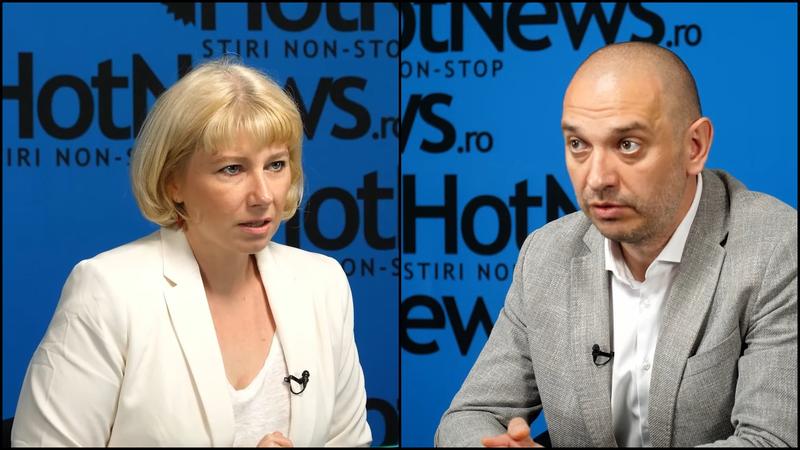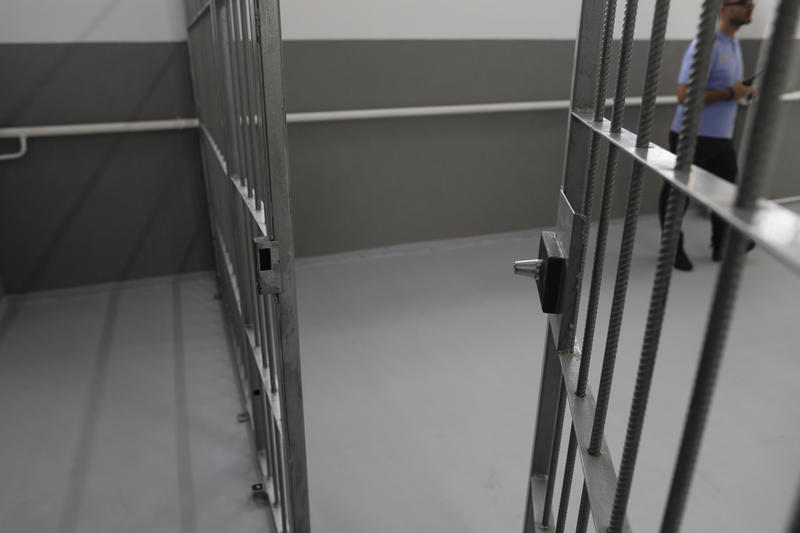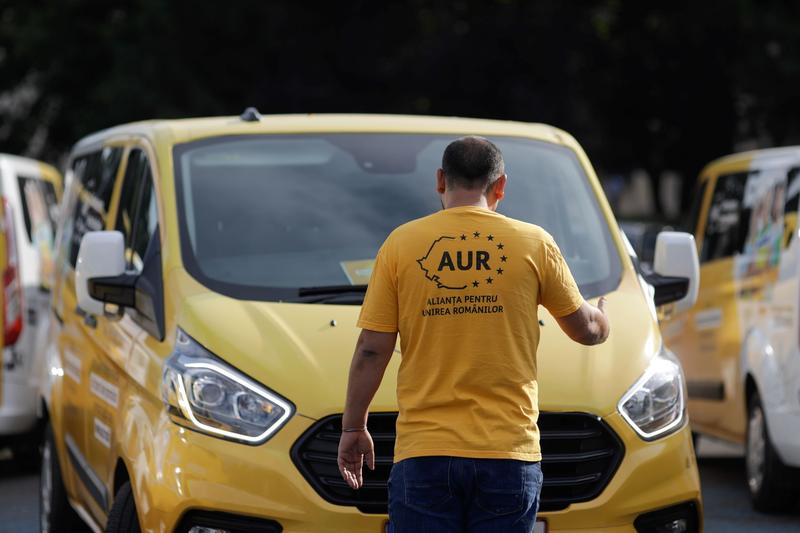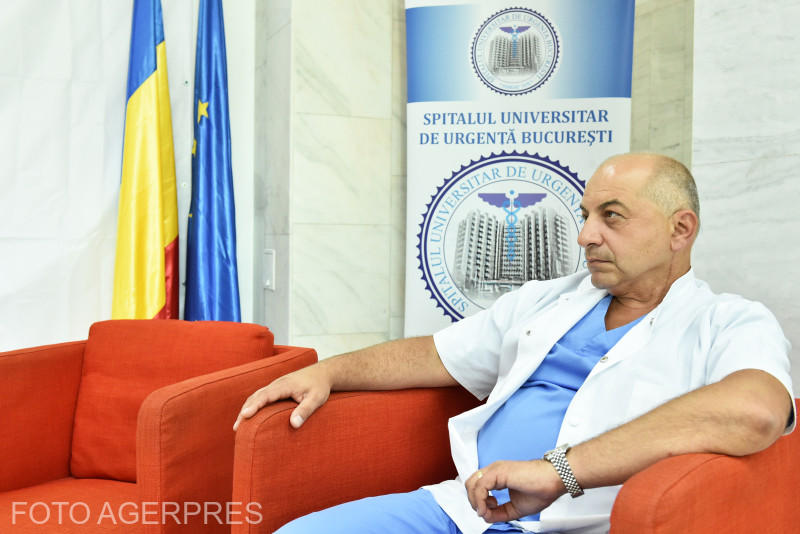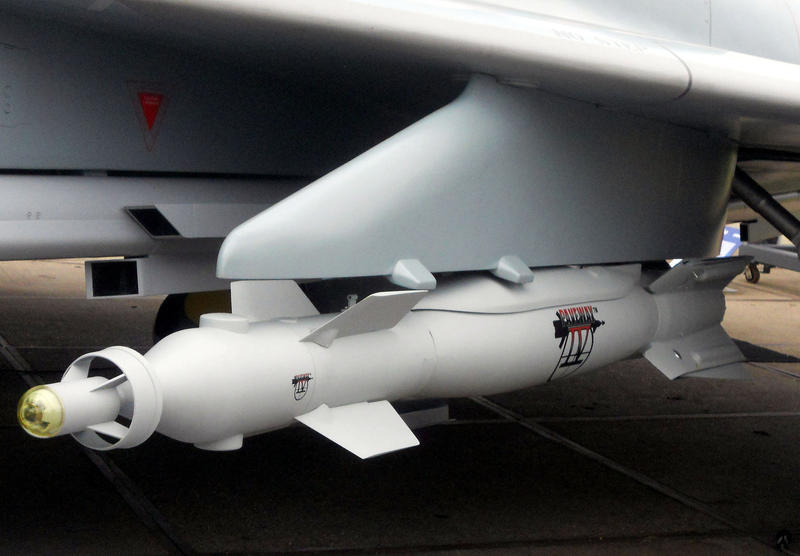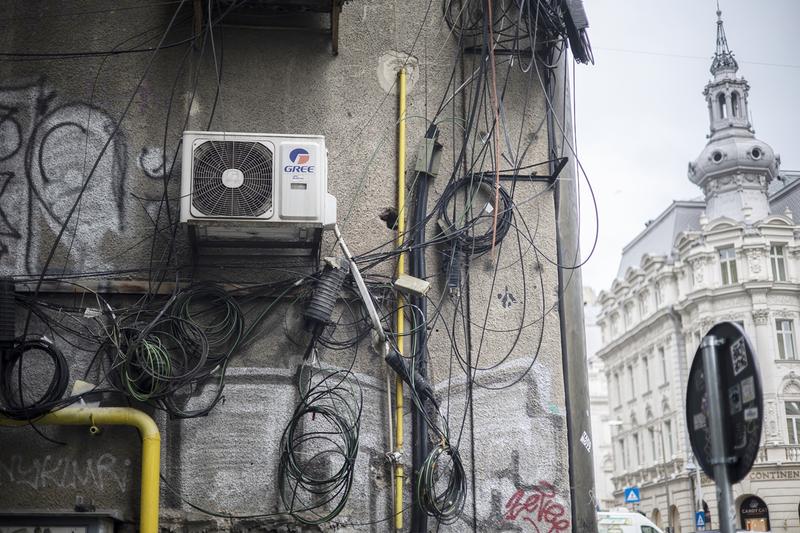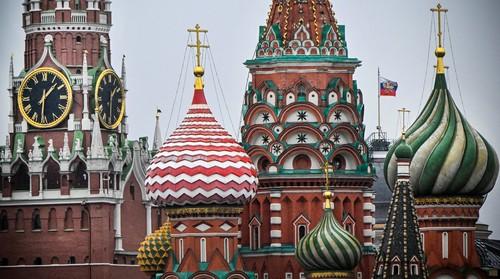All newspapers today read about yesterday's elections and like every other elections, fraud accusations are put forward. For these elections, the difference between turnouts in the cities versus villages was lower than four years ago, in 2004 - sociologists are "blaming" the crisis and the internet for this mobilization. The Social Democrats seem to have a major advantange as there were many counties voting them that mobilized yesterday.
Four survey institutes forecast that incumbent President Traian Basescu won the first election round closely followed by Social Democrat Mircea Geoana which means that Romanians will have to choose one the candidates as President in the second round on December 6.
53.2% of the citizens cast a vote yesterday, the Central Electoral Office announced after voting sections were closed. Estimates reveal that Basescu got 32.8% of the votes followed by Mircea Geoana with 31.2% and Liberal Antonescu with 22.2%.
As with every elections, fraud accusations sprang out. Cotidianul reads that there were plenty of frauds, mainly due to the lack of proper organization. Many committee presidents were not trained as it should, some were not selected according to criteria and the legislation regulating elections changed too many times.
Nonetheless, there were many other frauds which were orchestrated, the paper reads. In a village nearby Bucharest, three members of the electoral committee got a penal file after two voters received two ballots.
Deputy mayor Ion Mihalcea, in Stefanesti was fined with 25,000 lei for taking people to local voting sections. Plus, there were many dead people who cast a vote in these elections. In Fagaras, two people are investigated by the police after they were seen offering 20 lei in exchange for a certain vote.
Romania libera reads that there were many fraud suspicions at the special sections across Bucharest. The newspaper reads that the special voting sections had "independent" observers, who were members of a certain political party.
Evenimentul Zilei reads that even though all special voting sections were full yesterday, and people had to wait in line for hours, there were still plenty of people who were not able to vote because voting sections closed at 9PM.
The newspaper reads that in these elections, the turnout was not that different from cities to villages. Sociologists "blame" the economic crisis and the internet for this high mobilization. The difference between turnouts between cities and villages was only of 5% (51.50% in cities and 56.3% in villages) compared to ten percents in 2004.
According to experts, mobilization messages from right wing candidates did not matter that much, because no Presidential candidate had a special strategy for cities. The main cause, analyst Alfred Bulai declared, comes from the bad economic situation.
Teodorescu said that the internet played an important role for mobilizing those living in cities: the net offers niche televisions, commercial radios and an aggressive internet campaign.
Gandul reads about the counties in favor of the Social Democrats that mobilized in these elections. The red map comprises counties in South Romania like: Arges, Dambovita, Ilfov, Olt, Valcea, Gorj, Mehedinti and Teleorman including North Romania Suceava and Botosani.
These counties were in the top ten voter turnout across the country.

